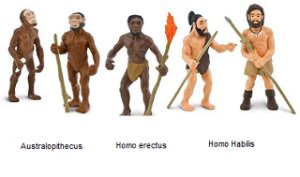
Posts Tagged ‘evolução’
Human-only eschatology
Two misconceptions about Christmas are that it is only the birth of Jesus, at least the historical Jesus must be admitted as a man who exists because there was a census when he was born, the second is what came and what will come, the advent is like that that (or that) that comes and will come.
of Jesus, at least the historical Jesus must be admitted as a man who exists because there was a census when he was born, the second is what came and what will come, the advent is like that that (or that) that comes and will come.
Rereading the work Homo sapiens by Yuval Noah Harari presents a Darwinian evolutionary perspective showing how man imposed his life on the planet, contemplating three phases: the collector, the agricultural (and sedentary), the industrial and the modern phase of information intensive, and search align the structural elements that connect with the cultural order and its foundations.
In terms of its culture, the general beliefs shared in each phase, which he calls fictional myths, to which he attributes the indispensable social cohesion and the undertakings of each period.
Even though he is a Jew, who has a strong abramic eschatology, he refuses the existence of the soul, conscience and individuality, considering that science has not detected this, and that the remarkable achievements of contemporary science dispense with these existences.
His long and elaborate work which, in denying these metaphysical existential facts, takes the same path as the neologicists, of algorithms that would regulate even biological life, but consciousness is something so disconnected from intelligence and is that organisms are just algorithms.
The classic sense of the cosmos, explored since Plato, the energy required to trigger an algorithm of creation, the energy without which the very idea of an algorithm cannot be sustained, is something that already pre-existed before the hominization of the cosmos (nature became himself) and what will be the future of this process about which Harari himself asks, without soul and awareness of this end.
These questions point to an eschatology, beginning and end, and we do not have a bet on a distant or near end if we do not have answers on a principle, the eschatological logic of Being.
Although Harari’s eschatology is not complete, there is no transcendence, he realizes that we are close to a very dangerous civilizing threshold, both in the human aspect and in the balance of nature, and that man will be able to accomplish this task alone without something superior.

